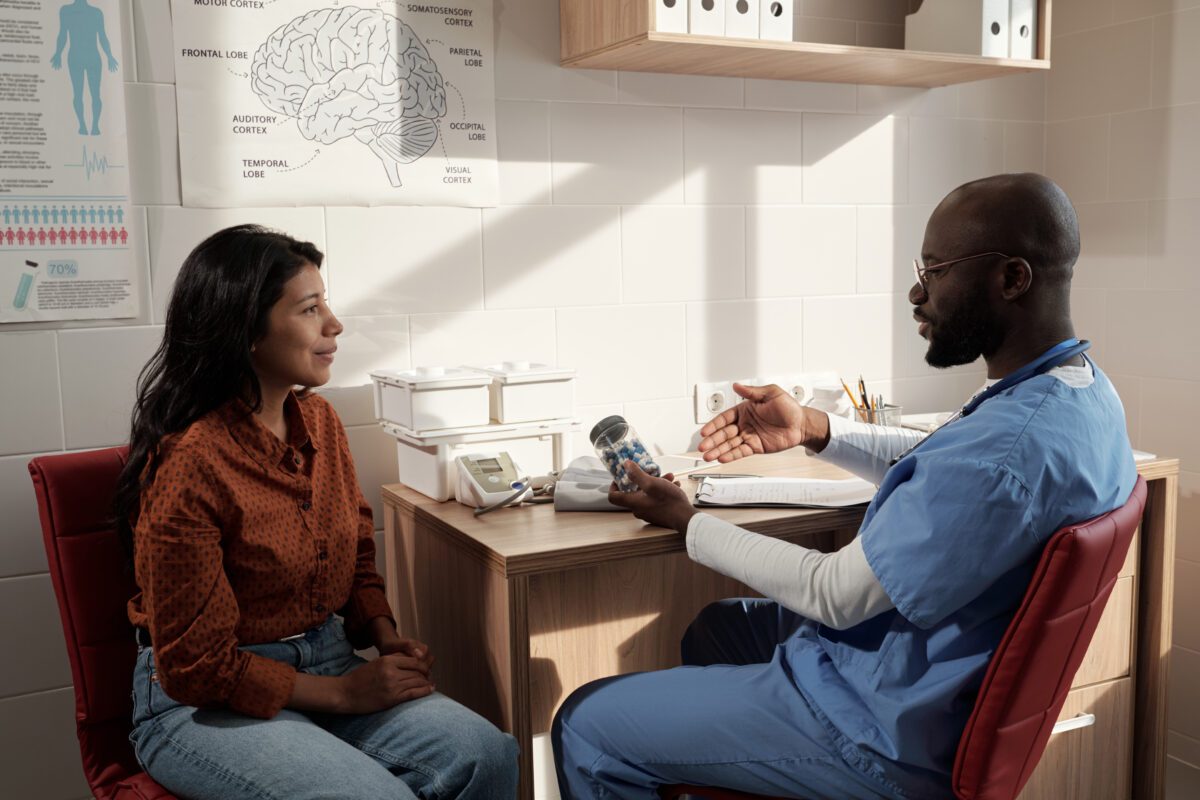Benefits of Totality Treatment
Comprehensive Mental Health Care
At Totality Treatment, we believe in the power of comprehensive mental health care. This approach is essential for individuals dealing with serious mental illness (SMI) or serious emotional disturbance (SED). Early and consistent treatment allows our clients to lead meaningful, productive lives, fostering recovery and well-being.
Our services are designed to support patients who are transitioning from inpatient treatment, experiencing episodes that don’t necessitate hospitalization, or simply needing assistance in maintaining treatment programs. By focusing on individualized care, we ensure that each person receives the necessary coping mechanisms, medication management, and support tailored to their unique circumstances.
To illustrate the effectiveness of our comprehensive approach, it’s important to note the characteristics of our programs:
| Feature | Description |
|---|---|
| Intensity | Offers flexibility in treatment intensity |
| Session Frequency | Group and individual therapy sessions, 3-4 times a week |
| Target Groups | Programs for adolescents, adults, and seniors |
Through our integrated systems, we are aligned with the goals of Certified Community Behavioral Health Clinics (CCBHCs), which are designed to provide comprehensive behavioral health care (SAMHSA).
Coordinated Behavioral Health Services
Totality Treatment emphasizes coordinated behavioral health services to ensure no aspect of care is neglected. We understand the importance of connecting various healthcare services to provide holistic support. This helps individuals navigate the complexities of mental health treatment effectively.
Our model prioritizes collaboration among healthcare providers to create comprehensive treatment plans tailored to the individual’s needs. This coordinated care framework is crucial because it delivers a continuum of care that integrates treatment, therapy, and support—leading to increased recovery rates and overall satisfaction.
By participating in an intensive outpatient program (IOP), our clients benefit from:
- Structured Support: Regular therapy and counseling to address mental health concerns.
- Resource Access: Connections to additional services like medication management and family case management.
- Holistic Focus: Emphasis on both mental and physical health, including nutrition referral and legal aid referrals for those in need.
We rely on standardized practices and an evidence-based approach to not only address addiction but also integrate mental health support through outpatient addiction treatment services. Our framework is sturdy and adaptable, ensuring the well-being of each individual as they work toward recovery and an improved quality of life.
Understanding Intensive Outpatient Programs (IOPs)
Definition and Purpose
Intensive Outpatient Programs (IOPs) offer a structured treatment option designed for individuals requiring more support than traditional outpatient therapy provides. IOPs are particularly beneficial for those dealing with substance use disorders and varying degrees of mental health challenges. By delivering an elevated level of care, these programs blend therapeutic support with the flexibility necessary for individuals to maintain their daily activities (Verywell Mind).
Duration and Structure
Most IOPs typically consist of multiple sessions per week, with each session lasting between 2 to 4 hours. The duration of these programs may vary, but many last for several weeks to a few months, depending on individual progress and treatment goals. The structure often includes a mix of group therapy, individual counseling, medication management, and mental health education. This comprehensive approach ensures participants receive well-rounded support tailored to their specific needs and circumstances.
| Aspect | Details |
|---|---|
| Session Frequency | 3–5 times per week |
| Session Duration | 2–4 hours per session |
| Program Length | Several weeks to a few months |
Evolution of IOPs
IOPs originated in the 1980s, primarily as a response to the needs of working professionals struggling with cocaine addiction who preferred not to take time off work for treatment. Over the years, the concept has evolved significantly. IOPs now cater to a diverse range of populations, including individuals with moderate mental health issues, dual diagnoses, and adolescents. The treatment modalities used in IOPs have also expanded to include various approaches such as Cognitive Behavioral Therapy (CBT), 12-Step Facilitation, and motivational techniques (Verywell Mind). This adaptability makes IOPs an essential component of our comprehensive outpatient addiction treatment services.
For those considering this option, Totality Treatment provides specialized IOPs tailored to meet differing needs, ensuring that individuals receive the necessary support throughout their recovery journey.
Utilization and Popularity of IOPs
Intensive Outpatient Programs (IOPs) have become a pivotal part of the mental health treatment landscape. As more individuals seek help for addiction and mental health issues, the growth and accessibility of IOPs play a significant role in their recovery journey.
Growth in Facilities and Clients
From 2010 to 2020, the utilization of IOPs has witnessed considerable growth, with nearly 3,000 more facilities joining the access pool, bringing the total to approximately 16,000. The number of clients served also increased, rising from around 1.2 million annually in 2010 to about 1.4 million in 2019. This growth reflects a growing recognition of the importance of structured outpatient care in supporting individuals dealing with drug and alcohol addiction.
| Year | Number of Facilities | Annual Clients Served |
|---|---|---|
| 2010 | 13,000 | 1.2 million |
| 2015 | 14,000 | 1.3 million |
| 2019 | 16,000 | 1.4 million |
Modalities Offered in IOPs
IOPs offer a variety of treatment modalities designed to meet diverse needs. These include:
- 12-Step Facilitation: A structured approach that encourages patients to engage with support groups like Alcoholics Anonymous or Narcotics Anonymous.
- Cognitive Behavioral Therapy (CBT): A widely used therapy focusing on identifying and changing negative thought patterns.
- Motivational Approaches: Strategies designed to enhance individual motivation toward recovery.
- Matrix Model: An intensive, structured program that incorporates a variety of therapeutic elements.
- Community Reinforcement and Contingency Management Approaches: Techniques that promote behavior change through community support and incentives.
Each modality serves to address specific aspects of recovery and mental health management, making IOPs a flexible and personalized option for treatment (Verywell Mind).
For those seeking more information on outpatient addiction treatment, our programs at Totality Treatment prioritize individual needs in recovery while offering a supportive environment.
Totality Treatment’s Approach to IOPs
At Totality Treatment, we understand that every individual’s journey to recovery is unique. Our approach to Intensive Outpatient Programs (IOPs) focuses on creating tailored treatment plans and providing both group and individual therapy sessions.
Tailored Treatment Plans
We recognize that there is no one-size-fits-all solution when it comes to recovery. Therefore, our IOPs are specifically designed to meet the unique needs of each patient. Although there is no set time frame for intensive outpatient treatment, programs lasting at least 90 days have shown to produce the best outcomes. Some individuals may find themselves in an IOP for a year or longer; however, it usually is not a lifetime commitment.
Initial phases of treatment frequently involve daily sessions that gradually transition to less frequent appointments, occurring three to five days per week for durations between four to nine hours each session. This flexibility allows us to accommodate varying levels of need and to adjust as individuals progress in their recovery.
| Duration | Frequency | Hours per Session |
|---|---|---|
| Initial Phase | Daily | 4-9 |
| Transition Phase | 3-5 days/week | 4-9 |
This model not only fosters engagement but also enhances the likelihood of successful outcomes, keeping our patients on a progressive path toward healing.
Group and Individual Therapy Sessions
In our IOPs, we offer a variety of therapeutic modalities tailored to support each individual’s recovery journey. These include but are not limited to 12-Step Facilitation, Cognitive Behavioral Therapy (CBT), Motivational Approaches, and the Matrix Model. Each modality is selected based on individual treatment needs and goals (Verywell Mind).
Our patients benefit greatly from a combination of group and individual therapy sessions. Group therapy not only allows individuals to share experiences and support one another but also fosters a sense of community. Individual sessions enable personalized attention and focus on specific challenges or milestones during treatment. Typically, these sessions may be held three to four days per week for several hours each day, addressing various mental health issues (Oceans Healthcare).
For those not experiencing symptoms warranting hospitalization or seeking to maintain their treatment, our IOPs offer a distinct advantage over traditional outpatient therapy, as they typically involve more frequent and intensive sessions, ranging from two to three hours a day, three to five days a week (Verywell Mind).
At Totality Treatment, we strive to create a comprehensive environment where our patients feel supported and empowered as they work toward recovery. For more information, explore our options in outpatient addiction treatment and see how we can assist you or your loved ones in their journey.
Eligibility and Accessibility at Totality Treatment
At Totality Treatment, we believe that access to quality mental health care should be available to as many individuals as possible. Our commitment to inclusivity is evident in the wide range of insurance options we accept and our programs designed for various age groups.
Wide Range of Covered Insurances
We are pleased to accept a variety of insurance plans to ensure that financial barriers do not impede access to essential mental health services. As of 2025, we accept Medicare, Medicaid, TRICARE, and most private insurance plans. This commitment increases our reach and allows us to serve a wider spectrum of clients seeking mental health outpatient care.
| Insurance Types | Coverage Status |
|---|---|
| Medicare | Accepted |
| Medicaid | Accepted |
| TRICARE | Accepted |
| Private Insurance | Most Plans Accepted |
Our goal is to eliminate financial stressors associated with seeking help, making it easier for individuals and families to access the treatment they need.
Inclusive Programs for Various Age Groups
Our programs are designed to accommodate individuals across the lifespan, ensuring that each group receives tailored approaches to treatment. This includes intensive outpatient programs specifically for adolescents, adults, and seniors. Therapy sessions include both group and individual components that are held three to four days per week for several hours each day, covering various mental health issues (Oceans Healthcare).
| Age Group | Program Type | Frequency |
|---|---|---|
| Adolescents | Intensive Outpatient | 3-4 days/week |
| Adults | Intensive Outpatient | 3-4 days/week |
| Seniors | Intensive Outpatient | 3-4 days/week |
By offering these comprehensive programs, we ensure that all individuals, regardless of age, have access to the support they need. We encourage individuals and families to explore our wide array of options, including outpatient addiction treatment and intensive outpatient programs, to find the best fit for their needs.
Success Stories with Totality Treatment
Real-life Experiences and Testimonials
Many individuals have turned to Totality Treatment for help with their mental health challenges, and their stories reflect the life-changing impact of our approach. One participant shared, “Before I found Totality Treatment, I felt lost and overwhelmed. The Intensive Outpatient Program (IOP) offered me structure, support, and guidance. With a combination of group and individual therapy, I learned to manage my feelings and gained confidence in myself again.” Stories like this highlight the effectiveness of our intensive outpatient program for those facing various issues, including dual diagnoses.
The programs at Totality Treatment provide a safe space for individuals to express themselves and connect with others facing similar challenges. By participating in well-structured sessions, clients have reported improved coping mechanisms, reduced feelings of isolation, and a more profound sense of community.
Impact of IOPs on Recovery and Wellness
IOPs represent a significant shift in how we approach recovery and wellness. According to the Substance Abuse and Mental Health Services Administration (SAMHSA), recovery is defined as a process through which individuals improve their health and wellness, live self-directed lives, and strive to reach their full potential (SAMHSA).
Our program involves three to four hours of therapy per day, three to five days a week, typically spanning four to six weeks. The comprehensive approach combines individual and group therapy sessions to address emotional and behavioral issues while ensuring participants receive necessary medical support through psychiatric consultations for medication management (Verywell Mind).
Clients have shared that the coordinated care provided by Totality Treatment has allowed them to stabilize their mental health while balancing life’s demands. One participant said, “The therapy was intense yet refreshing. I learned more about myself, and the tools I gained have helped me face challenges head-on.” Through our structured care model, individuals can pursue ongoing recovery successfully, highlighting the importance of continued support beyond initial treatment through programs like outpatient care after detox.
With countless testimonials reflecting positive experiences, we celebrate the journeys of those who have transformed their lives with the support of Totality Treatment. These stories illustrate the profound impact that dedicated, comprehensive mental health outpatient services can provide.











